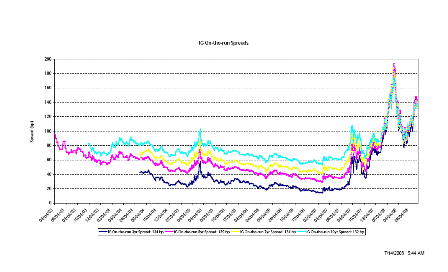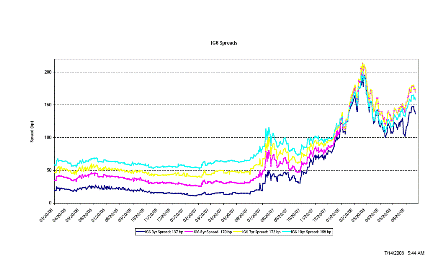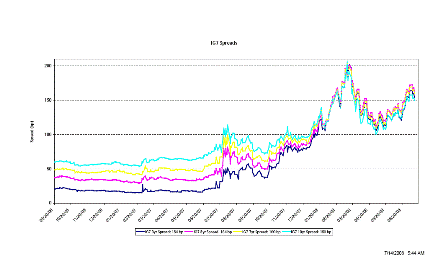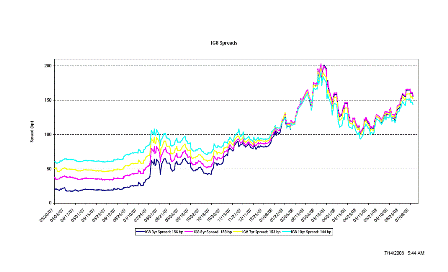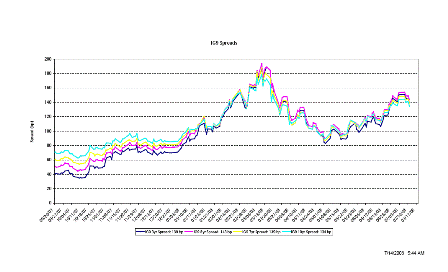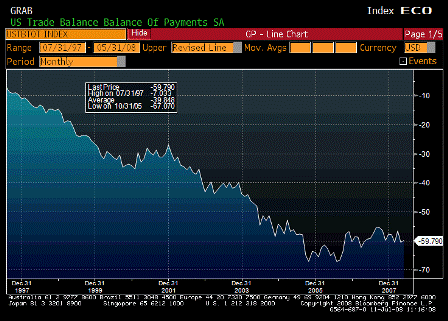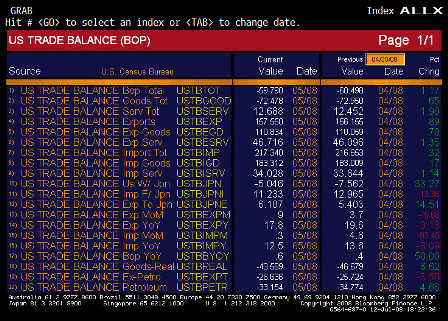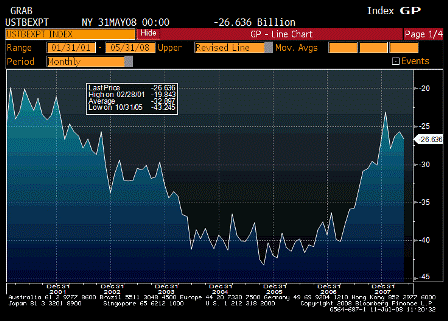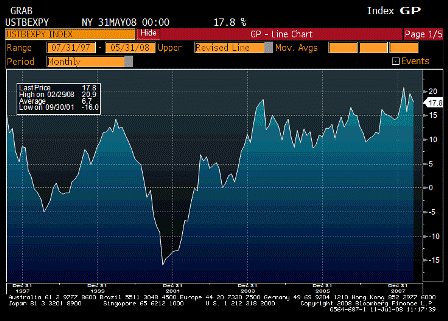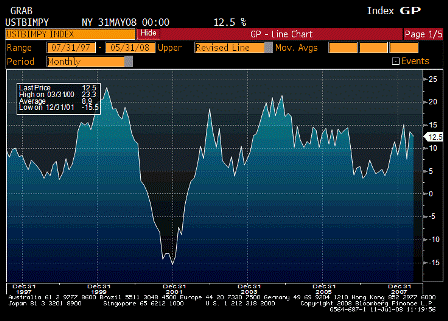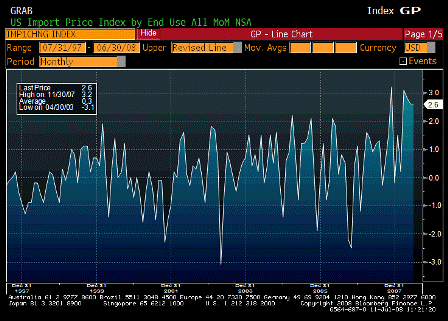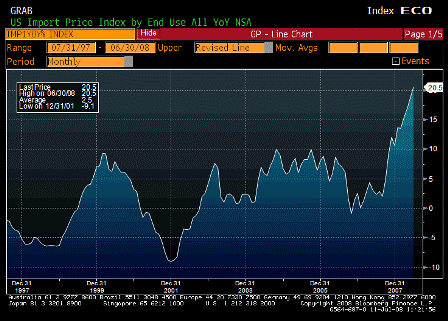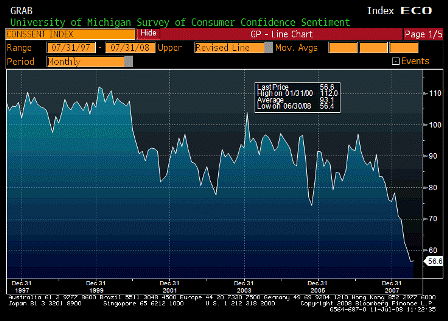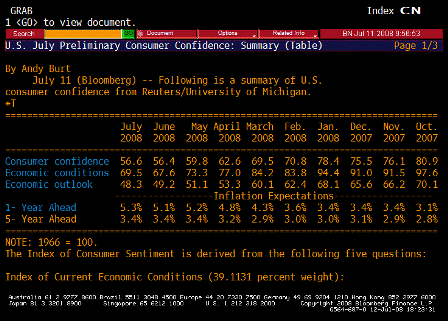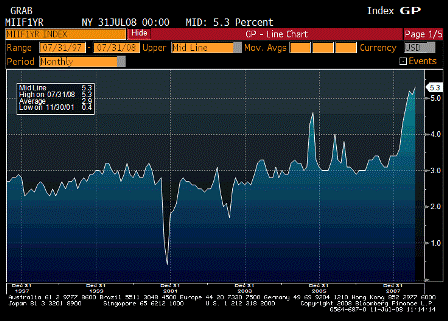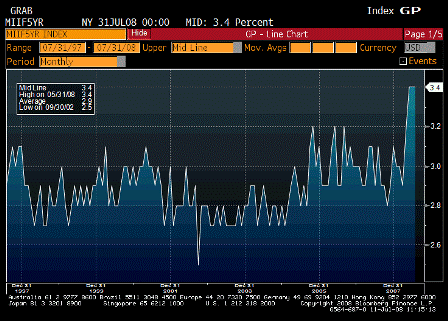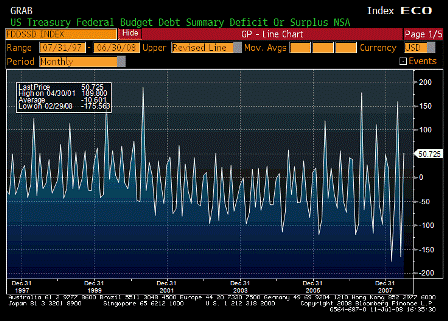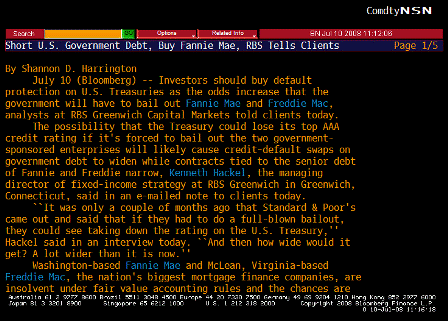[Skip to the end]
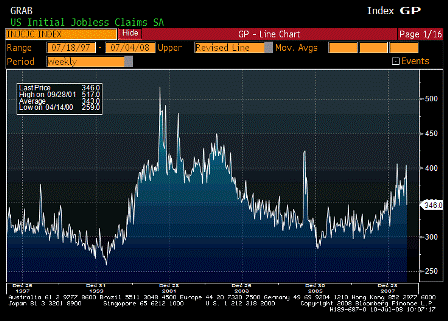


Initial Jobless Claims (Jul 5)
| Survey |
395K |
| Actual |
346K |
| Prior |
404K |
| Revised |
n/a |
[top][end]
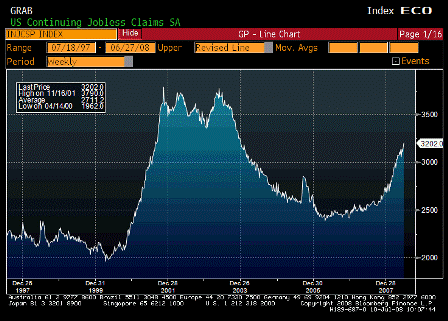


Continuing Jobless Claims (Jun 28)
| Survey |
3140K |
| Actual |
3202K |
| Prior |
3116K |
| Revised |
3111K |
Karim writes:
Initial claims down 58k to 346k; number distorted by seasonal adjustments related to expected annual maintenance at auto factories.
Claims number was adjusted to anticipate more seasonal layoffs in autos than occurred. When the expected add back doesn’t occur as expected, claims should return to prior level, all else being equal. Labor department official states the decline ‘a question of timing’,
Yes, it all comes out in the wash, but it takes a while; so, the 4 week moving average is a more useful indicator.
4wk avg drops to 380.5k from 390.5k.
Continuing claims jumps 91k to new cycle high of 3.202 million, highest since 12/03.
Higher continuing claims reflects lack of hiring and is related to longer duration of unemployment (and likely more tepid wage demands from those looking to find a job).
Also, with productivity running higher than GDP growth, by definition that means the growing real output can be accomplished with slightly fewer workers.
Twin themes remain: weakness due to lack of demand and higher prices due to higher costs of fuel/food/imports.
The numbers also show business would rather hire people already working than the unemployed, so the long term trend of more and more persistent long-term unemployment continues.
See ‘Full Employment and Price Stability‘ for ‘the answer’ and also the ‘base case’ for analysis.
[top][end]
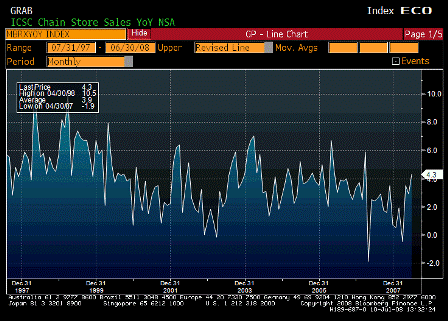


ICSC Chain Store Sales YoY (Jun)
| Survey |
3.3% |
| Actual |
4.3% |
| Prior |
3.0% |
| Revised |
2.9% |
Way better than expected. Hard for mainstream economists to believe fiscal policy will do much. They put their faith in interest rates, which never have done much, at least not in the intended direction.
[top]
